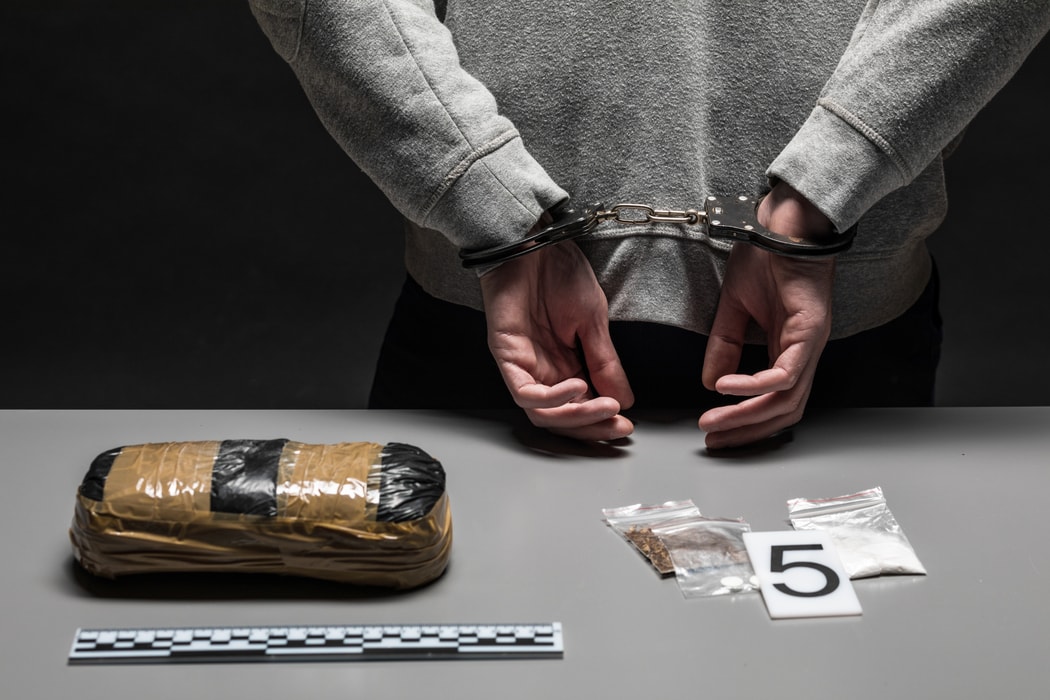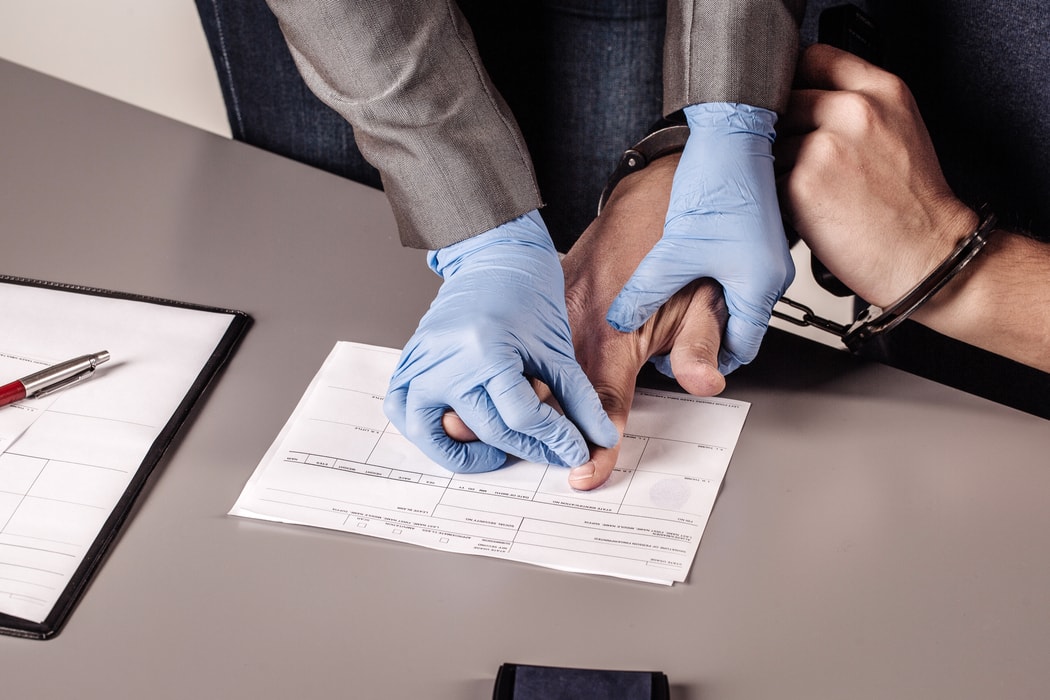
Arizona’s drug possession laws are clear. Therefore, if you intentionally or knowingly possess illegal drugs, you will receive a charge for drug possession. This can be a felony offense. Charges for possession with intent to distribute/sell or consecutive drug offenses make you vulnerable to a mandatory prison term, depending on the circumstances. Receiving a charge for drug possession in Arizona can seriously impact your life and ruin your reputation, finances, and future. Phoenix criminal lawyers provide you with the best possibility of beating your case and staying out of jail.
Controlled Dangerous Substances
All controlled dangerous substances are considered illegal drugs in Arizona and divided into six categories:
- Peyote
- Substances that emit toxic vapors
- Marijuana
- Prescription drugs
- Dangerous drugs
- Narcotic drugs
Arizona’s sentencing for drug possession is complex and hinges on several factors, including:
- Type of drug(s) involved
- Quantity of drug(s) involved
- Prior drug offenses
- Specific crime(s) involved (violent in nature or possession for personal use versus possession with intent to sell)
- Other mitigating or aggravating circumstances
Any drug-related conviction can have serious consequences, including prison time, substantial fines, mandatory drug counseling/treatment, and community restitution. Additionally, you could lose public benefits like public housing or other subsidies. Welfare benefits or any money or services provided by the state could also be revoked. Experienced Phoenix criminal lawyers protect your rights and always argue to have the case dismissed or for the lowest possible sentence.
Possession of Peyote
Recreational use of peyote is illegal in every state. In Arizona, possession of peyote is classified as a class 6 felony, unless it can be proven that you possess and use peyote as part of the legitimate practice of a religious belief, it is an integral part of this practice, and its use does not endanger public health, safety, or morals. A class 6 felony is the least serious felony under Arizona law. However, it can still lead to a prison sentence, including one year for a presumptive conviction and two years for an aggravated conviction. In some cases, a skilled criminal lawyer can argue to have the class 6 felony designated a misdemeanor.

Possession of Vapor Emitting Toxic Substances
Vapor-releasing substances containing toxic substances include any paint or varnish dispensed in aerosol form and any glue that releases vapors or fumes containing substances that when inhaled alters a person’s state of mind or consciousness.
Possession with intent to breathe or inhale these substances is usually a class 5 felony. But the court may reduce this conviction to a class 1 misdemeanor based on the nature of the offense. A class 5 felony can be punishable with 1.5 years in prison for presumptive convictions or two-and-a-half years for aggravated convictions. Whereas a class 1 misdemeanor can result in six months in jail and/or three years of probation.
Possession of Marijuana
Although medical marijuana is legal is Arizona, possessing cannabis without a medical marijuana card, even for your personal use, can still result in felony charges. Without any prior convictions, a criminal lawyer can argue that the recreational use or possession of marijuana should be reduced to a class 1 misdemeanor. Otherwise, felony charges vary based on possession weight and intent.
Possession for personal use:
- Class 6 felony: less than two pounds
- Class 5 felony: two to four pounds
- And class 4 felony: four pounds or more
Possession for sale:
- Class 4 felony: less than two pounds
- Class 3 felony: two to four pounds
- And class 2 felony: four pounds or more
Marijuana possession cases involving weights of less than two pounds may include fines of not less than $2,000 or three times the value of the marijuana, whichever is greater. Plus, a jail sentence of up to 12 months, without any prior convictions, or three-and-three-quarter years in the Arizona Department of Corrections with prior convictions.
Possession of Prescription Drugs
Possession of prescription-only drugs without a valid prescription is a class 1 misdemeanor, which is the most serious misdemeanor offense. Punishment can include up to six months in jail and/or three years of probation. You may also have to pay a minimum fine the judge cannot reduce or suspend. Probation requires submission to drug testing and forbids you from using marijuana or any dangerous, narcotic, or prescription-only drugs (except those lawfully prescribed by a medical practitioner) during your probation.
Possession of Dangerous Drugs
Dangerous drugs include hallucinogenic substances and drugs that depress the central nervous system, such as methamphetamine, LSD, ecstasy, PCP, mushrooms, and mescaline. Anabolic steroids also fall under this category. Possession of dangerous drugs is a class 4 felony, punishable with a prison sentence of two-and-a-half years for a presumptive conviction, and three years and nine months for aggravated. However, without previous drug convictions, as long as the drug was not LSD, PCP, meth or another type of amphetamine, Phoenix criminal lawyers can argue for a reduction of the charge to a class 1 misdemeanor or participation in a diversion program, depending on the nature of the offense.
Possession of Narcotic Drugs
Whether natural or synthetic in origin, drugs with any psychoactive compound and/or sleep-inducing properties are typically classified as narcotics, but some, like cocaine, are actually a stimulant. Narcotic drugs include opioids, cocaine, heroin, morphine, oxycodone, and many others. Possession of narcotic drugs is treated the same as dangerous drugs with a class 4 felony charge or participation in a diversion program with a solid defense by experienced Phoenix criminal lawyers.

Arizona’s Prop 200
Under Arizona’s Proposition 200, non-violent drug offenders facing a first or second drug possession offense no longer fear mandatory prison sentences. The standard Prop 200 sentence is probation and mandatory drug counseling/treatment that focuses on rehabilitation, instead of incarceration. However, if you are facing a charge for possession of methamphetamine, Prop 200 will not protect you. Even if it is your first offense, you will face a prison sentence without talented Phoenix criminal lawyers in your corner.
Arizona Drug Threshold Amounts
In Arizona, “threshold amounts” are determinative in drug sales cases. Arizona statute 13-3401 outlines the threshold amounts for each type of drug. Therefore, if a person is caught possessing the minimum statutory threshold amount of a specific drug, or greater, they will be subject to mandatory prison sentence. Further, they will not be eligible for probation and drug treatment. Additionally, possessing a quantity of drugs greater than the threshold amount will result in a presumption that the drugs were being possessed for sale.
Below are the drug threshold amounts:
- Amphetamine and Methamphetamine: 9 grams or greater
- Cocaine: 9 grams powder, 750 mg rock
- Heroin: 1 gram
- LSD ½ ml liquid, 50 doses
- PCP – 4 grams or 50- ml
- Lastly, marijuana – 2 pounds
If you receive a conviction for possessing a drug for sale, manufacture, or transport, and if the amount of the drug involved is above the statutory threshold amount, courts will impose a mandatory prison sentence. As a result, a criminal defense lawyer should have knowledge of the impact of the threshold amounts. They should also know how to challenge the manner in which authorities may have determined the weight of the drug.
Hire Top Phoenix Criminal Lawyers
At Lerner & Rowe Law Group, we have in-depth knowledge of Arizona drug possession laws and experience in defending all types of drug possession cases. Our Phoenix criminal lawyers can increase your chance of receiving reduced or dismissed charges or alternative sentencing. We offer free initial consultations and affordable payment plans. Visit our office Monday-Friday, from 8 AM to 5 PM, use our online LiveChat, or call us 24/7 at 602-667-7777. So, don’t delay any longer.

